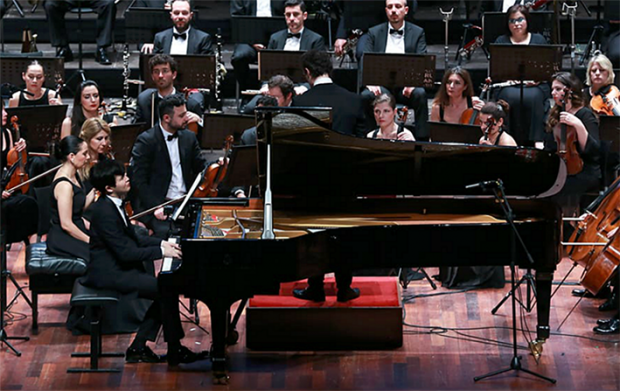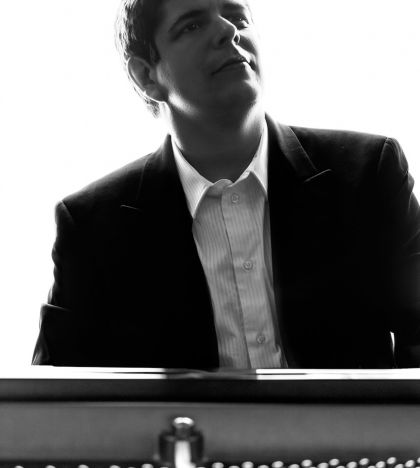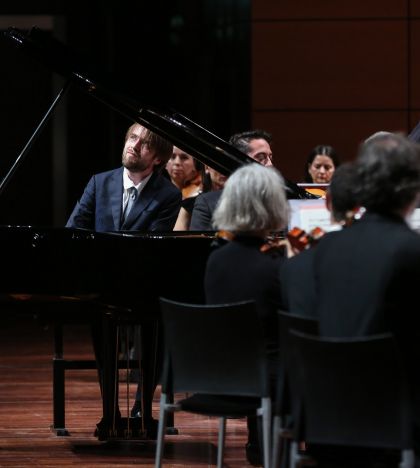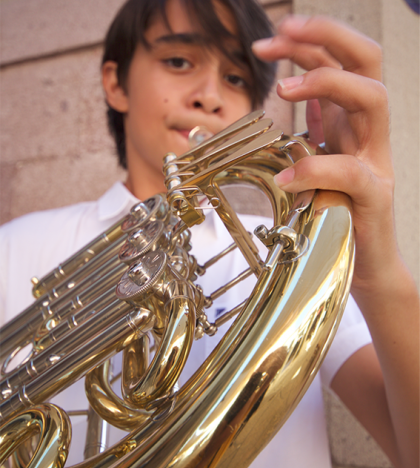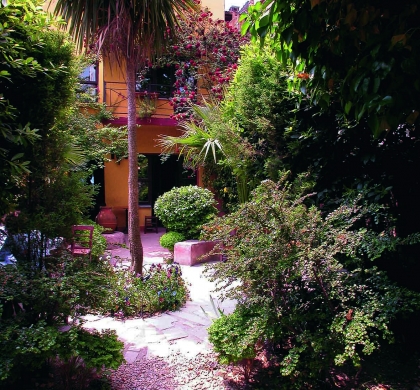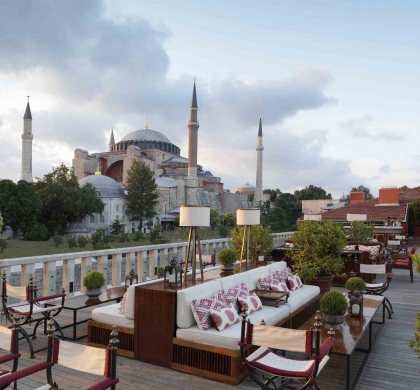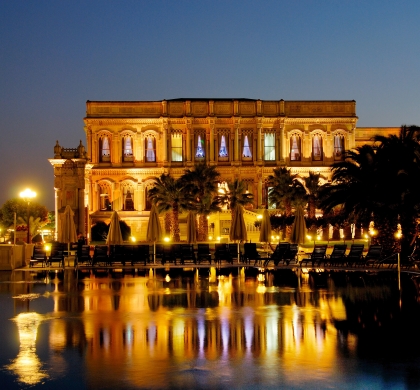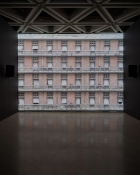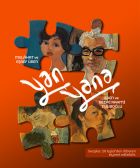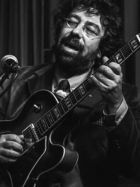The 46th İstanbul Music Festival, organised by the İstanbul Foundation for Culture and Arts (İKSV), kicked off with a concert at the Lütfi Kırdar Concert Hall last night (Wednesday, May 23). Once again I was prompted to reflect on how far we have come since I first attended a classical music concert in İstanbul in 1978, and vowed never to attend another.
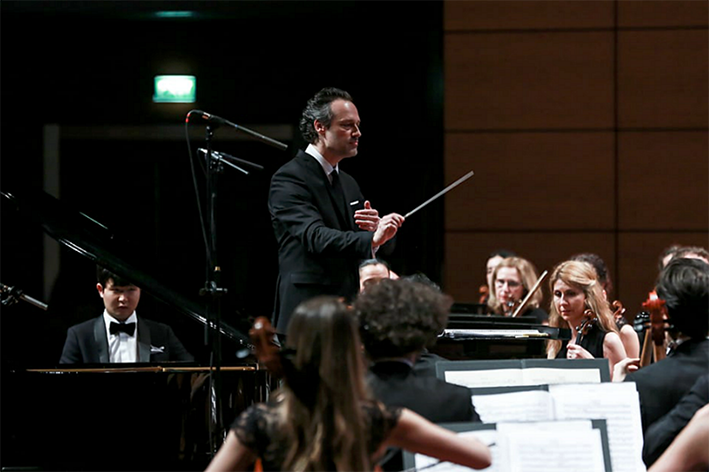
Sascha Goetzel conducts the Borusan Philharmonic with the pianist Yekwon Sunwoo
The performance of the Borusan İstanbul Philharmonic Orchestra, under the capable direction of Sascha Goetzel, was good enough to make anyone break their vow of chastity with regard to concert attendance, while the soloist – Yekwon Sunwoo, from South Korea, winner of the 2017 Van Cliburn International Piano Competition – was a well-deserved hit with the audience, combining effortless technique with an unobtrusive intimacy in the calmer passages of Rachmaninov’s Third Piano Concerto: clearly, this performer possesses a mature restraint rarely seen in a 29-year-old. He kept a watchful eye on the conductor throughout (I was sitting in a seat from which I could follow every facial movement) and was careful not to throw the orchestra with unrestrained rubato. But he need not have worried – the Borusan Orchestra’s intrusions were invariably diplomatic, their level of professionalism such that they know how to follow a soloist almost without a man standing in front of them waving a baton.
This was the opening concert of the Festival, so of course proceedings began with some speechifying. We listened to Mr Bülent Eczacıbaşı, chairman of the board of the İKSV Foundation, and Ms Gaye Akçen from ECA (main sponsors of the festival). We then watched a film presentation of the life and work of Yekta Kara, an opera singer who later found her métier as director and general artistic manager of the İstanbul State Opera and Ballet. She was given an award. (As an aside, I hope Turkish opera organisers will continue to have the courage to present works with their libretti translated into Turkish. In 1984 I watched a performance of Mozart’s The Magic Flute sung in Turkish, with the late Ayhan Baran as soloist. It worked marvellously. Although the sound of the Turkish undotted 'ı' can sound a little foreign, in general the language has a vowel system conducive to singing, with no awkward consonant clusters.)
When the music began, it was a relief to find that just the right tempo for the first movement of the Rachmaninov had been selected. When not concerned with working up some drama and showcasing the pianist’s technique, the composer is surely to be credited for his ability to create a langorous mellowness of mood. In particular, he had a real talent for using the bassoon as a dialogue partner with the piano when a relaxation of the neck tendons is required. Indeed, the gentleman from the world of business on my left nodded off at one point.
For some reason, Rachmaninov himself plays the first movement too fast in this 1939 recording with the Philadelphia Orchestra. Maybe he was impatient to get home, or just homesick for Mother Russia.
Van Cliburn (the man after whom the award recently won by Mr Sunwoo is named) plays this movement at a less breakneck – or rather, break-finger – speed in this performance with the Moscow Philharmonic Orchestra, conducted by Kirill Kondrashin. The recording dates from 1958, the year in which the tall Texan won the International Tchaikovsky Piano Competition at the age of 23.
With the commencement of the Adagio, your reviewer began to enjoy not just the performance of the musicians, but also that of the conductor: with the first movement behind them, the inter-relationships between all parties on the stage warmed up and Mr Goetzel really got into his stride. Perhaps as a tribute to his rapport with them, the string section fluffed none of their pizzicato entries.
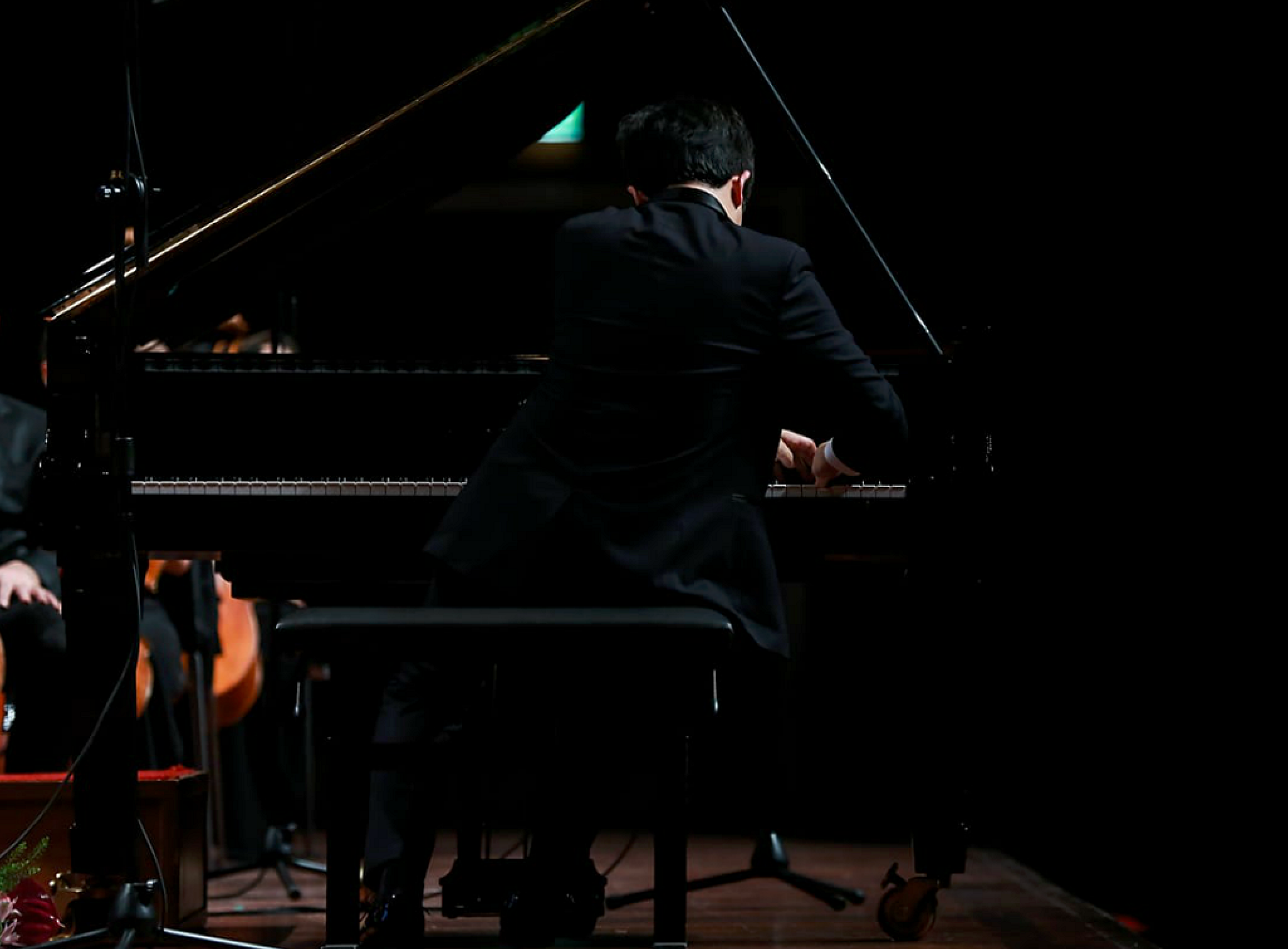
I cannot pass on, however, without voicing a niggle on the subject of Rachmaninov’s chromaticism: the constant shifting of the tonality as it moves further and further from the home key makes it difficult to achieve a clear-cut modulation. There is only the home key, and the various excursions that precede a return to it. This makes the ‘newness’ of a wholesale modulation to the dominant key (for instance) impossible, and as a result the music is deprived of one of the tools it would otherwise use to create fresh starts for itself.
But enough of such cavils: those of us Istanbul residents who have survived into the 21st century are lucky to have such high standards of musicianship brought before us. Earlier I remarked how far we have come since the 1970s and 1980s, when the intonation of the Turkish orchestras unwisely let loose on the TRT 3 music channel was so appalling that I was forced to turn off – even when only half-listening as a distraction while doing the ironing. It is now the turn of Turkey’s public-sector orchestras to copy the likes of Borusan and Tekfen, and to raise their game.
When the Borusan Orchestra first marched onto the stage on Wednesday night, I was glad to see no fewer than eight cellists coming to join the four double-bassists. 'Aha,' I thought, 'we are going to have a proper bass line'. I must assure sponsors that not skimping over the strength of the bass line does make a significant difference to the quality of the music. And when the orchestra assembled for the second item on the programme – Tchaikovsky’s 1812 Overture – I was further gratified to see a respectable number of violinists arrive to swell the ranks after the thinner orchestration of the Rachmaninov. There is really nothing like a good, fulsome string sound, and that is just what we got in the Tchaikovsky. We also had the added bonus of some rollicking brass chords played with zero glitches (the composer was a Taurean, remember, and knew how to construct a solid, heavy-duty, chandelier-rocking soundblast).
It was a pity that the six business-suited gentlemen sitting on my left who had endured the Rachmaninov with such fortitude left before the Tchaikovsky. They might have enjoyed it. It might even have distracted them from their Facebook feeds (through which they had been compulsively flicking during the first 45 minutes of the concert). But I cannot only criticise them: the two ladies on my right, who did stay to the end, were religiously absorbed in their Whatsapp conversations, ignoring even the orchestra’s exertions during the 1812’s fortissimo ending. My life’s ambition is to invent a device that will disable all telephones during concerts, even if they are in silent mode. The merest attempt to turn the blasted things on will result in them being transformed into lumps of noxious, foul-smelling plasticene.
A final aside: with all those booming cannons getting everyone fired up in the musical France-vs-Russia battle that concludes the 1812, I was moved to reflect that it is a pity Tchaikovsky was never asked to write a ‘1453’ Overture to celebrate the 400th anniversary of the Conquest of İstanbul. I know that in 1853 he would only have been 13, and that in the run-up to the Crimean War the Russians and the Ottomans were hardly on speaking terms, but all the same…
Much gratitude to whoever planned the concert programme for allowing the Borusan Orchestra to show off its paces on this balmy May night, both as expert accompanists to a talented young soloist and then as roof-raisers. Like the fire-crackers let off by the Chinese on festive occasions, this music certainly frightened the ghosts away.
Photographs by Ali Güler, courtesy of IKSV
John Shakespeare Dyson is classical music reviewer for the Cornucopia online Arts Diary

